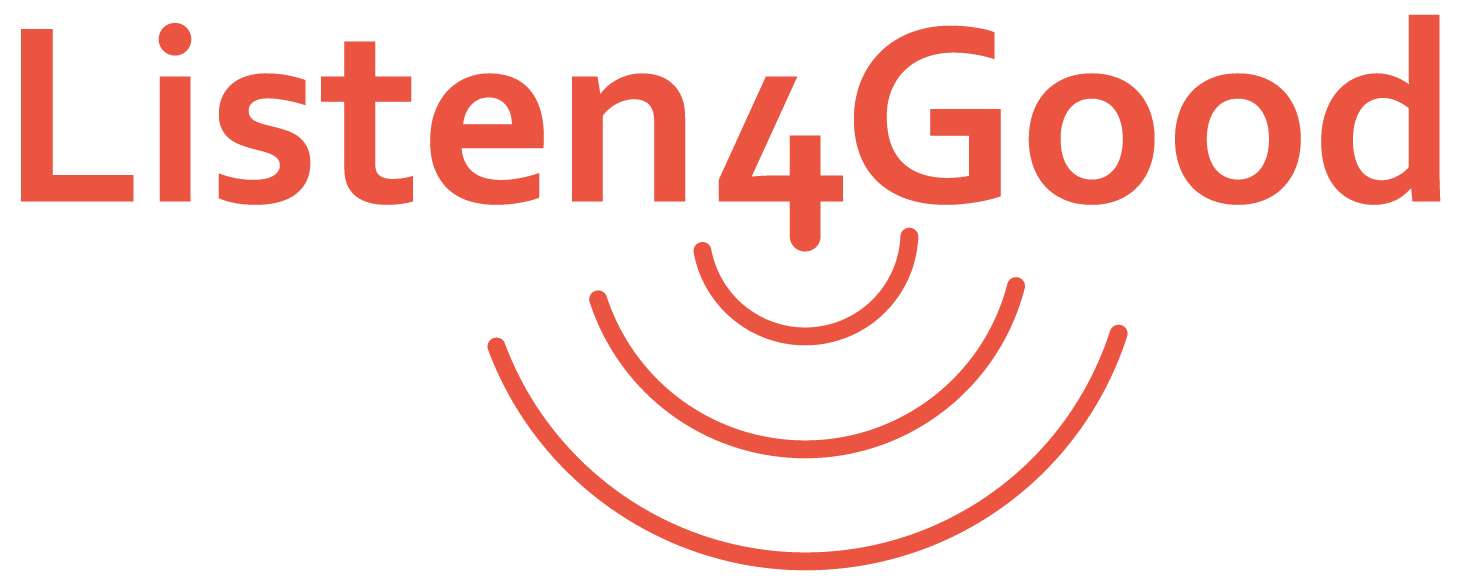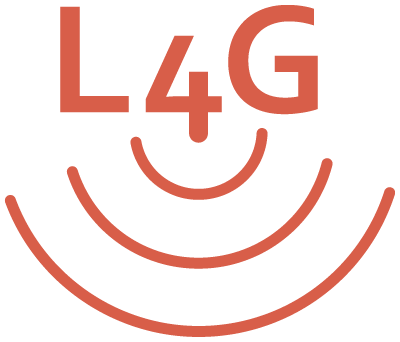- Case Studies
Harnessing Feedback to Drive Advocacy
February 27, 2025
- Acting on Feedback
- Advocacy
- Community Voice
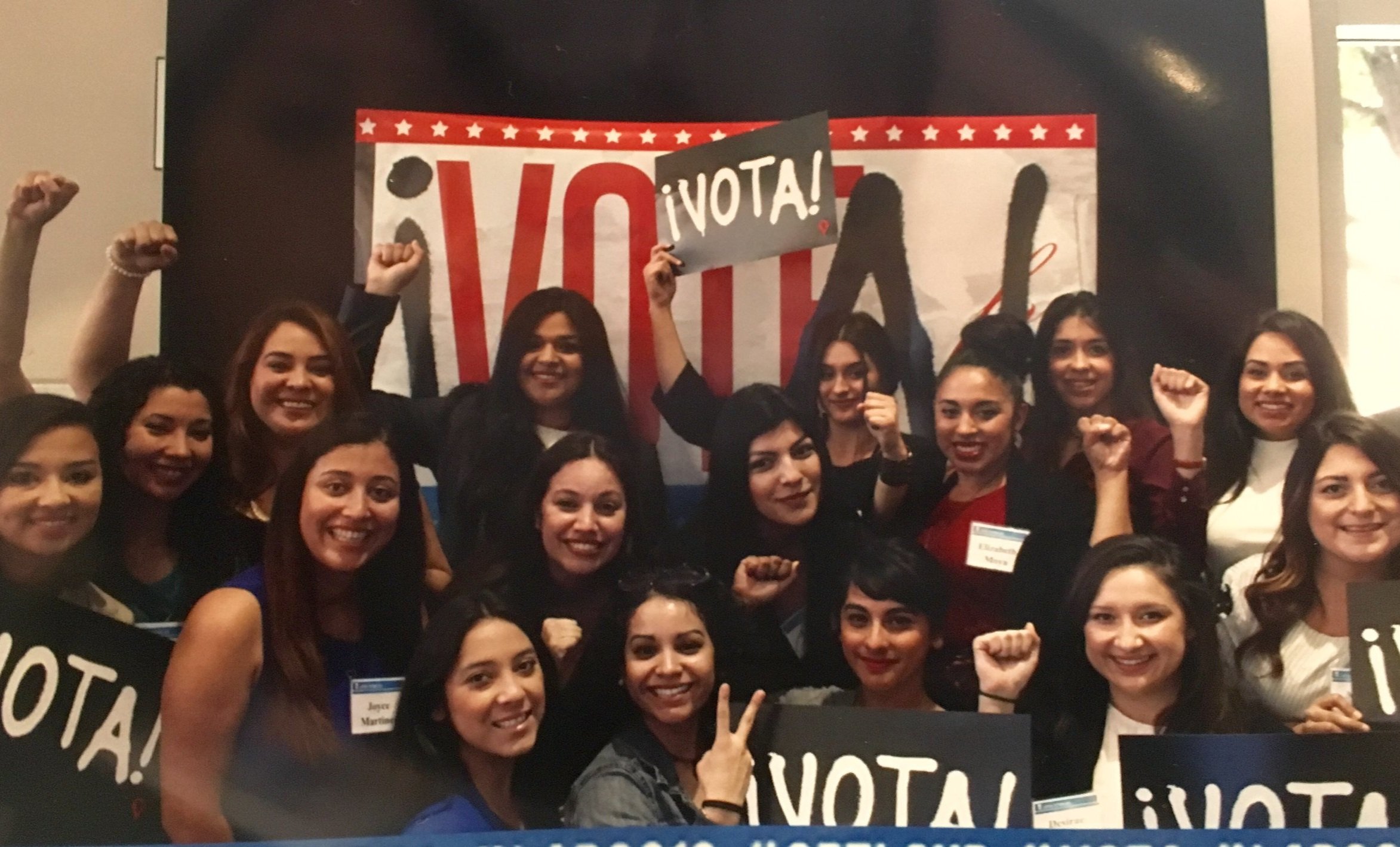
As advocacy organizations scale, maintaining close connections with their communities can be challenging. This case study explores how two rapidly growing advocacy organizations—Latinos United for a New America (LUNA) and the Latina Coalition of Silicon Valley (LCSV)—worked with Listen4Good (L4G) to integrate feedback systems that amplify their impact, strengthen movement-building efforts, and ensure alignment with their communities’ needs.
Feedback is critical for ensuring successful scaling of advocacy efforts.
Community organizing organizations like LUNA and LCSV– which begin as small, passionate grassroots efforts, with workers, parents, and community members uniting to tackle urgent local issues– are uniquely positioned to elevate community voices and push for systemic change. As they grow, however, they face significant challenges: hiring staff and expanding programs may increase capacity, but it also makes it harder to maintain close connections with the community.
For many advocacy leaders, this balancing act between scaling and staying grounded in the community’s needs is a critical opportunity and a complex hurdle to navigate. Many advocacy organizations’ inherent power comes from their initial grounding and connections to the interests of the community they came out of. However, as these organizations scale, the dynamics between members and staff can shift. Listen4Good addresses this common growth challenge by equipping advocacy organizations with tools to collect, analyze, and act on structured community feedback. This process not only helps organizations align their strategies with community priorities but also deepens trust by demonstrating that feedback directly informs
decisions.
LUNA’s and LCSV’s Listen4Good projects resulted in:
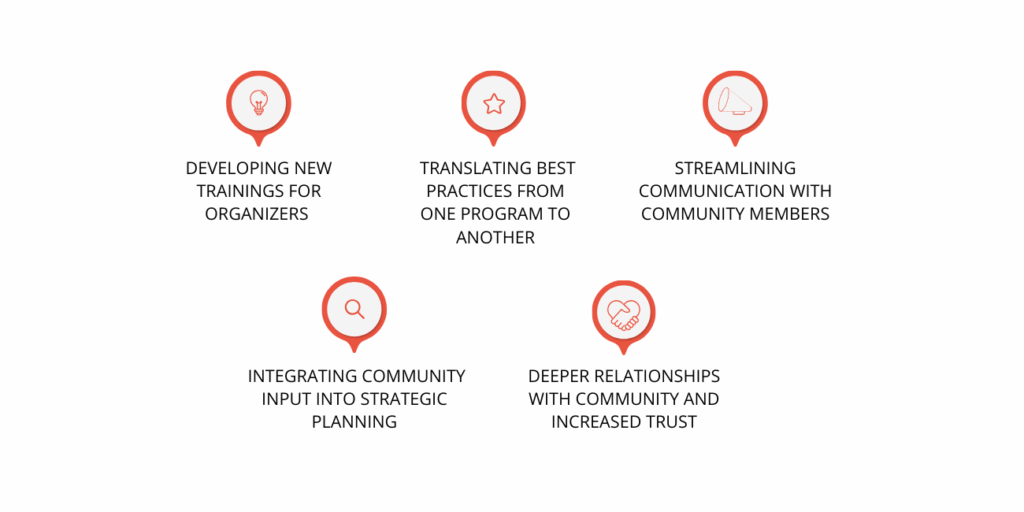
As advocacy organizations scale, they need opportunities to reflect and adjust. That’s why funders like Sobrato Philanthropies prioritize their financial needs and support their capacity to grow sustainably. By investing in access to capacity-building initiatives like Listen4Good, funders empower advocacy organizations to expand their impact systems and processes.
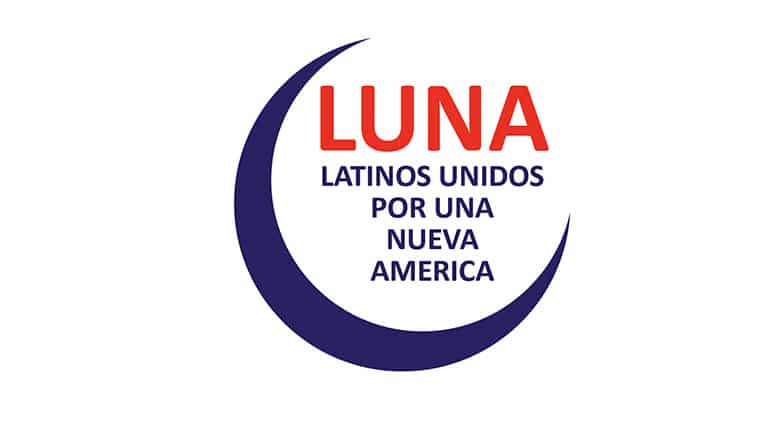
LUNA, founded in 2013 in East San Jose, is a grassroots organizing coalition that addresses community issues, particularly police brutality and the lack of affordable housing. LUNA focuses on tenant organizing, housing rights, immigrant rights, youth crime prevention, and the environment. What began with a small group of committed neighbors has grown into an advocacy organization with five neighborhood chapters and 600 community members. LUNA’s growth brought challenges in scaling organizational systems.
LCSV, established in 1999, empowers Latinas through leadership development, civic engagement, and economic mobility programs. They are known for their flagship Engaged Latina Leadership Activist (ELLA) program, which creates opportunities for Latinas to cultivate leadership skills and access resources and opportunities locally and statewide. LCSV transitioned to a professionalized staff model in 2021. With 14 staff members and four programs, this rapid growth created an urgent need to ensure their initiatives remained impactful and community-centered.
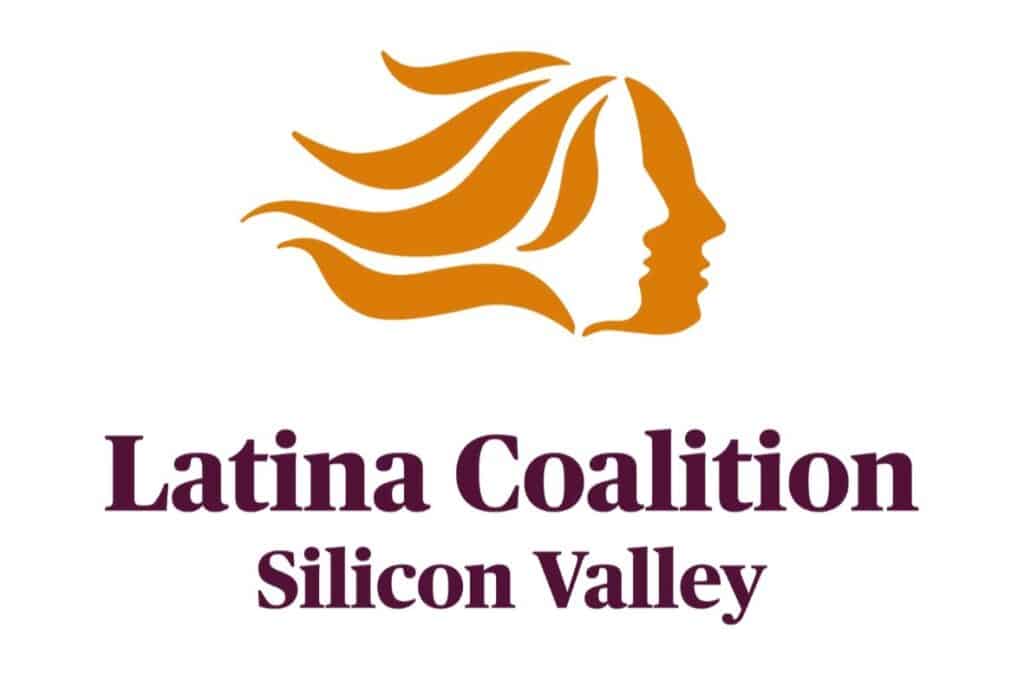
Before Listen4Good: LUNA and LCSV encountered challenges in embedding feedback into their decision-making processes as they scaled.
For LUNA,their rapid expansion highlighted a need for better infrastructure for gathering and synthesizing participant feedback. Before Listen4Good, LUNA’s team of organizers engaged with community members through one-on-one conversations. These conversations provided invaluable insights into the needs and challenges of the people they served. However, as LUNA grew, their ability to organize and synthesize that information into actionable insights was inconsistent across chapters.
“We were gathering data all the time and trying to embed that feedback into what we do but didn’t have the opportunity to present it in a very structured way. We didn’t have a plan for all the chapters to speak with organizers and learn from the voices they were not hearing from or to react to that feedback.”
Yurina Guzman, LUNA
LCSV experienced similar challenges stemming from limited resources and growing complexity. As they expanded their programs, feedback collection remained informal and inconsistent, and was often led by volunteers without the tools or capacity to act on the information they gathered. For example, the organization recognized that the ELLA program had built strong relationships and a sense of community that led to high engagement and participation from alumni. While LCSV hoped that intentional feedback from their alumni would help them replicate that success in newer programs, they lacked a standard process for gathering and responding to feedback.
Listen4Good helped LUNA and LCSV evolve from informal feedback practices to intentional systems that aligned strategies with community needs.
Both organizations worked closely with their L4G coaches and used resources like survey templates and the Listen4Good web app to build their capacity for designing, collecting, and analyzing feedback.
When LUNA began working with L4G, the first goal was to design a process to listen intentionally to community members across all its chapters. With the help of their L4G coach, LUNA created surveys that were available in Spanish and easy for their predominantly Spanish-speaking members to understand and respond to honestly. The team worked collaboratively, involving lead organizers who acted as an advisory council and refining the survey questions.
The feedback collection process was organized into two loops, each providing critical insights:
Loop 1: The first L4G feedback loop focused on gathering input from a limited number of chapters. Feedback from around 35 members revealed disparities in chapter-level leadership support:
- Chapters led by more experienced organizers had higher member satisfaction and engagement.
- Community members also wanted more leadership presence from LUNA’s executive team in the neighborhoods.
Loop 2: In its second loop, LUNA expanded outreach to over 100 members to gather feedback from constituents of all of its chapters.
- The results revealed inconsistencies in how the different community organizers engaged and served their respective chapters, highlighting the need for more organizers’ support to build the same level of community trust.
- LUNA’s language and communication style needed to be simplified to better reach members with limited literacy skills.
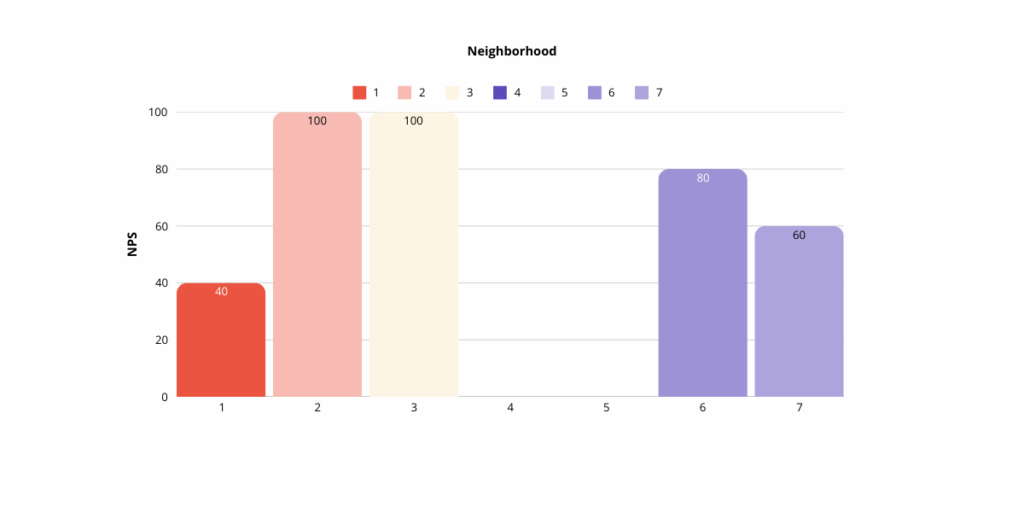
Surveys showed that some chapters performed better than others on community satisfaction, as measured by the Net Promoter Score℠ (NPS®*).
LUNA closed the loop with their community members by:
- Sharing feedback results with both their board and community, using presentations to ensure transparency and demonstrate how member input shaped their decisions
- Restructuring its decision-making process to empower staff and organizers, with proposals now requiring team votes and organizers having the final say on campaigns they lead
- Restructuring co-directors roles to engage more directly with community events
LUNA is finalizing a new 3-year strategic plan based on the feedback collected through the Listen4Good program. Key elements include:
- Revising language to be more accessible and inclusive
- Increasing board member engagement and accountability
- Formalizing training and support structures for community organizers
- Expanding initiatives around mental health and air quality awareness
The Listen4Good program came at a critical time for LCSV. With only three staff members at the start of the program, LCSV needed feedback systems that could help replicate the key elements of its flagship ELLA program into newer initiatives. Despite facing staff transitions throughout the program, L4G’s structure and tailored coaching support made the process manageable and impactful.
“We’ve had a lot of support and patience from the Listen4Good team. I will say that the timeline that [L4G] has identified, and the different steps…including all the materials that we’ve been provided…has allowed us to stay true to the process and pick up where folks had left off.”
Eonis Cibrian Pelayo, LCSV
LCSV’s feedback collection also followed a two-loop process:
Loop 1: LCSV’s first loop focused on its ELLA program, which boasts over 250 alumni. With their Listen4Good coach, LCSV designed surveys that achieved a 63% response rate through targeted outreach, text reminders, and incentives.
- What came through the feedback was the profound sense of sisterhood and emotional connection that participants valued as a core outcome of the program.
- The data also revealed that while LCSV already implemented many of the suggested changes from the L4G survey feedback, it had not communicated those changes to the community.
Loop 2: The second loop gathered feedback from alumni of LCSV’s PALA program, with a 62% response rate. This program centers around a three-day leadership boot camp experience and is smaller and newer than ELLA.
- The program received a higher-than-average NPS score and confirmed many trends from their first loop including that alumni were interested in more relationship-building and networking opportunities.
- LCSV also gained a deeper understanding of the diverse Latine communities it serves, refining its approach to better meet the needs of its participants.
LCSV closed the loop by sharing its findings with program alumni and the broader community. They created and distributed an impact report through various channels, including the organization’s newsletter, graduation ceremonies, and community outreach events. This transparency strengthened the organization’s relationships with its stakeholders by demonstrating its commitment to continuous improvement.
A key theme from the feedback was the importance of the “sisterhood” and sense of community that participants valued within the ELLA program. The organization plans to continue building a network for alumni and strive for the same level of connection and belonging across all its programs.
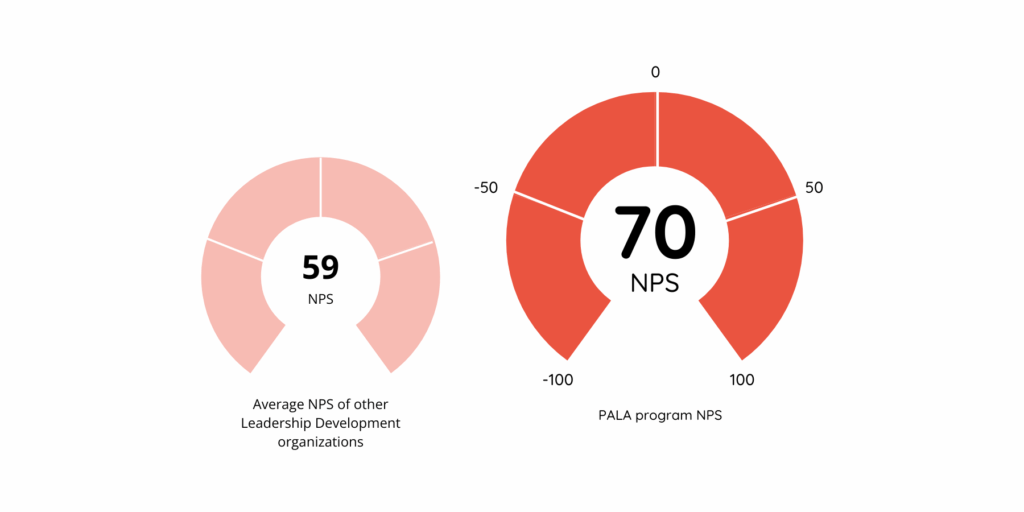
The PALA program received an NPS* of 70. That’s significantly higher than the average Leadership Development organization in Listen4Good’s comparative dataset. Listen4Good benchmarks help organizations compare their survey results to other similar organizations
Listen4Good feedback programs empower advocacy organizations to scale sustainably and stay true to their grassroots.
Scaling any nonprofit is inherently challenging. In the early stages, organizations lack the necessary systems and processes to support growth– they’re building the plane as they’re flying it. For advocacy organizations, community feedback is an essential system for sustainable scaling. When advocacy groups are small, their members expect direct access to leadership—whether that’s being in the room during decision-making or texting the founder to share their thoughts. However, that contact and influence changes as the organization grows and professionalizes. Without effective feedback systems in place, friction can arise between new staff and their community base. Developing strong mechanisms for gathering, processing, and responding to feedback is key to bridging this gap and ensuring growth that centers community voice.
*Net Promoter Score℠ (NPS®) is based on gathering and benchmarking customer feedback to the question: “How likely is it that you would recommend [X organization] to a friend or colleague?” on a 0 to 10 point scale. Clients’ responses to NPS are correlated with other questions in the Listen4Good survey, looking at the extent to which clients’ needs are met and/or whether they feel treated with respect.
